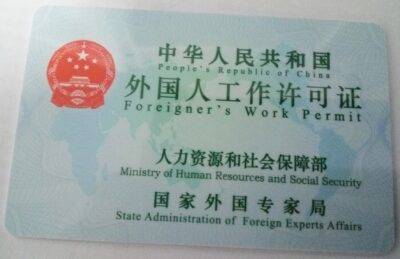
Finding a job in China can be a rewarding experience, offering an opportunity to immerse yourself in a rich culture while advancing your career.
Whether you’re drawn by the bustling cities or the opportunity to work in a rapidly growing economy, there are a few key strategies that can help you secure a job in China as an expat.
Here, we provide comprehensive tips and insights to guide you on how to find a job in China.
1. Understanding the Job Market in China
The job market in China is diverse and dynamic, with opportunities spanning various industries such as technology, education, finance, manufacturing, and hospitality.

China’s economic growth has created a demand for skilled professionals, especially in sectors like IT, engineering, and international business.
1.1. High-Demand Industries for Expats
- Technology and IT: With cities like Beijing and Shenzhen emerging as tech hubs, there’s a high demand for software developers, data scientists, and IT project managers.
- Education: English teaching positions are plentiful, particularly in international schools and language training centers.
- Finance and Business: Shanghai and Hong Kong are leading financial centers, offering roles in banking, finance, and international trade.
- Manufacturing and Engineering: China’s manufacturing sector is one of the largest in the world, requiring experts in engineering and supply chain management.
- Hospitality and Tourism: With China becoming a top travel destination, there are numerous opportunities in hotels, travel agencies, and tour operations.
2. Preparing Your Job Search
Before embarking on your job search in China, it’s crucial to prepare thoroughly.
This involves understanding the visa requirements, tailoring your resume for the Chinese market, and leveraging both online and offline resources.
2.1. Visa Requirements and Work Permits

To legally work in China, expats must obtain a work permit and a Z visa (work visa). The process typically involves the following steps:
- Securing a Job Offer: You must have a job offer from a Chinese employer.
- Obtaining a Work Permit Notice: Your employer must apply for a work permit notice on your behalf.
- Applying for a Z Visa: With the work permit notice, you can apply for a Z visa at a Chinese embassy or consulate in your home country.
- Residence Permit: Once in China, you must apply for a residence permit within 30 days.
2.2. Tailoring Your Resume and Cover Letter
Chinese employers may have different expectations compared to Western companies. To make your application stand out:
- Format: Use a clean, professional format with clear headings.
- Language: While English is acceptable, having a version translated into Chinese can be advantageous.
- Content: Highlight your relevant experience, skills, and achievements. Emphasize any previous experience in China or with Chinese companies.
- Cover Letter: Write a compelling cover letter explaining why you are interested in the position and what you can bring to the company.
2.3. Leveraging Job Search Platforms
There are several platforms and resources available to aid your job search:
- Online Job Portals: Websites like Glassdoor, 51Job, and Zhaopin are popular for job listings.
- Recruitment Agencies: Working with agencies that specialize in placing expats can provide personalized assistance.
- Networking: Join professional networks and attend industry events. Networking is highly valued in China, and personal connections can be crucial.
3. Navigating the Interview Process
The interview process in China may differ from what you’re accustomed to. Understanding these differences can help you prepare effectively.

3.1. Common Interview Practices
- Multiple Rounds: Be prepared for several rounds of interviews, including HR screenings, technical interviews, and final discussions with senior management.
- Group Interviews: Some companies conduct group interviews to assess how candidates interact and perform in a team setting.
- Cultural Fit: Chinese companies often place significant emphasis on whether candidates fit into their company culture. Demonstrating an understanding of Chinese business etiquette and culture can be beneficial.
3.2. Questions to Expect
- Professional Experience: Expect questions about your previous roles, achievements, and how your experience aligns with the job requirements.
- Situational Questions: Be prepared to discuss how you would handle specific work situations or challenges.
- Cultural Adaptability: You may be asked about your understanding of Chinese culture and how you plan to adapt to living and working in China.
4. Embracing the Work Culture in China
Understanding and adapting to the local work culture is key to success in your new job.
4.1. Hierarchical Structure
Many Chinese companies have a hierarchical structure, with clear lines of authority and decision-making processes. Respect for seniority and titles is important.
4.2. Relationship Building (Guanxi)
Building strong relationships, or guanxi, is a cornerstone of Chinese business culture. This involves cultivating trust and mutual respect with colleagues and business partners.
4.3. Work-Life Balance
Work hours in China can be long, especially in certain industries like technology and finance. Understanding the expectations around work hours and demonstrating a strong work ethic will help you integrate more smoothly.
5. Adapting to Life in China
Living in China as an expat comes with its unique set of challenges and rewards.
5.1. Language
While many Chinese professionals speak English, learning Mandarin can significantly enhance your experience and improve your day-to-day interactions.
5.2. Cultural Differences
Being open to cultural differences and showing respect for local customs and traditions will help you integrate into Chinese society. Participate in local festivals, try Chinese cuisine, and explore the rich history and culture of your new home.
5.3. Expat Communities
Joining expat communities can provide support and networking opportunities. Cities like Beijing, Shanghai, and Guangzhou have vibrant expat communities with social events, online forums, and support groups.
Conclusion
Finding a job in China as an expat requires preparation, adaptability, and a proactive approach.
By understanding the job market, tailoring your application, leveraging resources, and embracing the local culture, you can successfully navigate the process and enjoy a fulfilling career in China.


